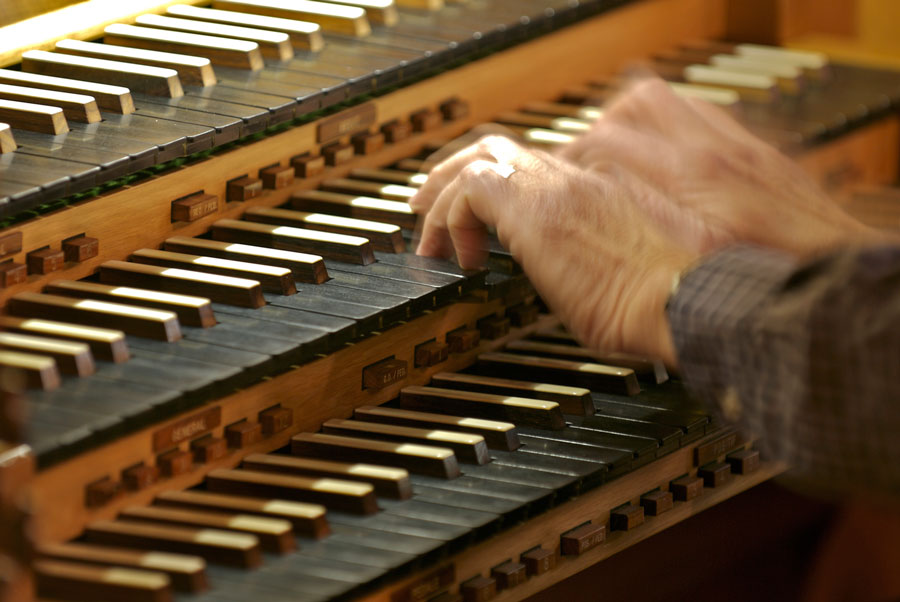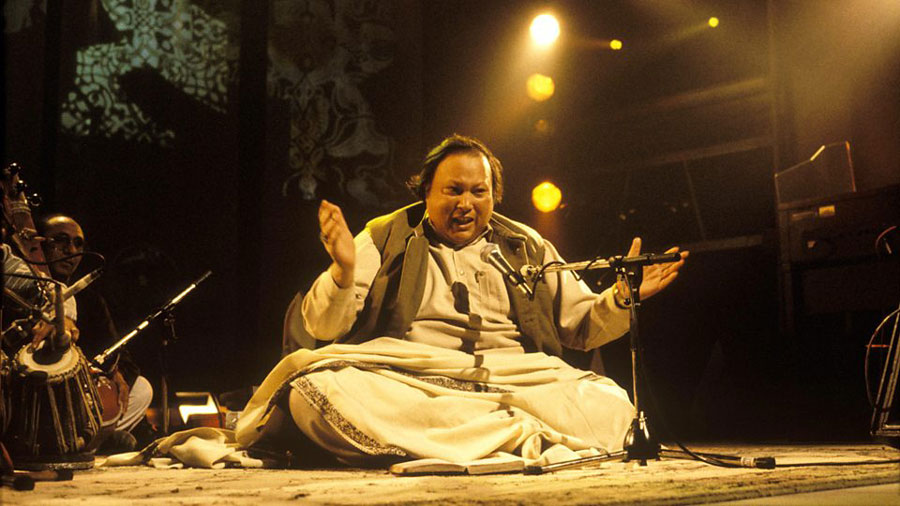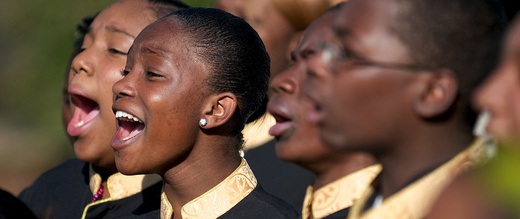The views expressed in our content reflect individual perspectives and do not represent the authoritative views of the Baha'i Faith.
Let everything that has breath, praise the Lord. – Psalms 150:6.
Is anyone among you in trouble? Let them pray. Is anyone happy? Let them sing songs of praise. – James 5:13.
Yea, music is the Prophet’s art
Among the gifts that God hath sent,
One of the most magnificent! – LongfellowThe art of music is divine and effective. It is the food of the soul and spirit. Through the power and charm of music the spirit of man is uplifted. – Abdu’l-Baha, The Promulgation of Universal Peace, p. 52.
Why should the devil have all the good tunes? – Rowland Hill
I came to appreciate and love sacred music—what you might call praise songs or gospel or divine music—in kind of a roundabout way.
First, as a teenager I listened to ex-gospel singers like Aretha Franklin and Mavis Staples and Sam Cooke sing their popular soul songs, and fell in love with their beautiful voices and passionate delivery. Then, after a little bit of study and a few more birthdays, I learned that my favorite soul singers had started out singing in church, in gospel choirs—and I realized that I really wanted to hear that music, too.

Then, of course, I ran into the old “sacred vs. secular” division, the controversial, so-called “religious” idea that music could be split into two completely camps, and never the twain should meet. I instinctively never liked the sacred vs. secular idea much, because, if you know the real history of most sacred music, you know it often came from very secular roots. After all, the human voice and all the instruments we’ve invented to play music have no sacred or secular divisions.
For example: Martin Luther loved the pipe organs in Christian cathedrals—but John Calvin condemned them as being profane. Elvis Presley, even when he sang gospel songs and hymns, was heavily criticized by many ministers and priests. Every year around Christmas time, most Western cultures consider Handel’s “Messiah” as one of the great works of sacred music—but after he composed his masterpiece in England in 1741 the conservative clergy all over London roundly condemned him. “How dare he profane the Word of God,” they said, “by using the same musical motifs employed in Italian operettas?”
Although I was no church-goer, as a Baha’i I loved hearing the sincere and soulful praise of God, in just about any genre. So I sought out more and more of that divine music, especially the oldest gospel songs, Negro spirituals and hymns I could find, and listened to them with increasing appreciation and joy.
That interest led me to get very curious about other kinds of divine music. I discovered Sufi qawwali music, especially the beautiful ghazals, songs that use the metaphor of romantic love to express a mystical love for God. If you’re curious, you could begin by listening to the remarkable voice of Nusrat Fateh Ali Khan, one of the world’s great qawwali singers; or to Junoon, a Pakistani Sufi rock band that explored the qawwali tradition in a new and powerful way.

Nusrat Fateh Ali Khan
Listening to qawwali made me curious about the divine music of other spiritual traditions—so I started investigating, and found out about the West African griot praise singers. A griot is a combination of things—oral historian, storyteller, poet and musician. That griot tradition, one of the oldest sacred music traditions in all human history, has given us wonderful contemporary artists and performers like Senegal’s Baaba Maal and Mali’s Sara M’Bodji, one of the very first female griot singers in a previously male-dominated field.
Most of these artists combine their sacred music traditions with some kind of fusion that incorporates modern instruments, styles and techniques. Papa Wemba, the famed Congolese singer and bandleader who just passed away, had an interesting way of describing his melding of sacred and secular musical traditions: “When I started singing pop music,” he once told an interviewer, “I left religious music completely. But there was always the influence of religious music on my voice because, with religious music, the minor key always recurs. When I compose songs, I often use the minor key.”
The Baha’i teachings have something to say that might surprise you about this trend of combining sacred and secular styles:
There are two kinds of music—divine and earthly music. Divine music exhilarates the spirit, while earthly music has an effect upon the body. Divine music belongs to the Kingdom of God, earthly music is of the mundane world. I hope you will be confirmed to study both kinds of music so that you may be able to sing the anthems of heaven and the songs of this world. – Abdu’l-Baha, Star of the West, Volume 8, p. 177.
“…study both kinds of music,” Abdu’l-Baha counseled one musician who asked him for advice. The Baha’i teachings encourage musicians to make all kinds of music, in much the same way they encourage us to unify the secular and religious worlds and call all humanity to one heavenly banquet:
O musician of God!… The songsters of fellowship that abide in the gardens of holiness must pour forth such a triumphant burst of songs in this age that the birds in the fields may wing their flight in a transport of delight; and in this divine festival, this heavenly banquet, they should play the lute and the harp, and the viol and the lyre in such wise that the people of east and west may be filled with exceeding joy and gladness, and be carried away with exultation and happiness. – Abdu’l-Baha, from a tablet to an individual Baha’i.
In many ways, all music could be considered sacred—because all music comes from the human heart.

















Comments
Sign in or create an account
Continue with Facebookor